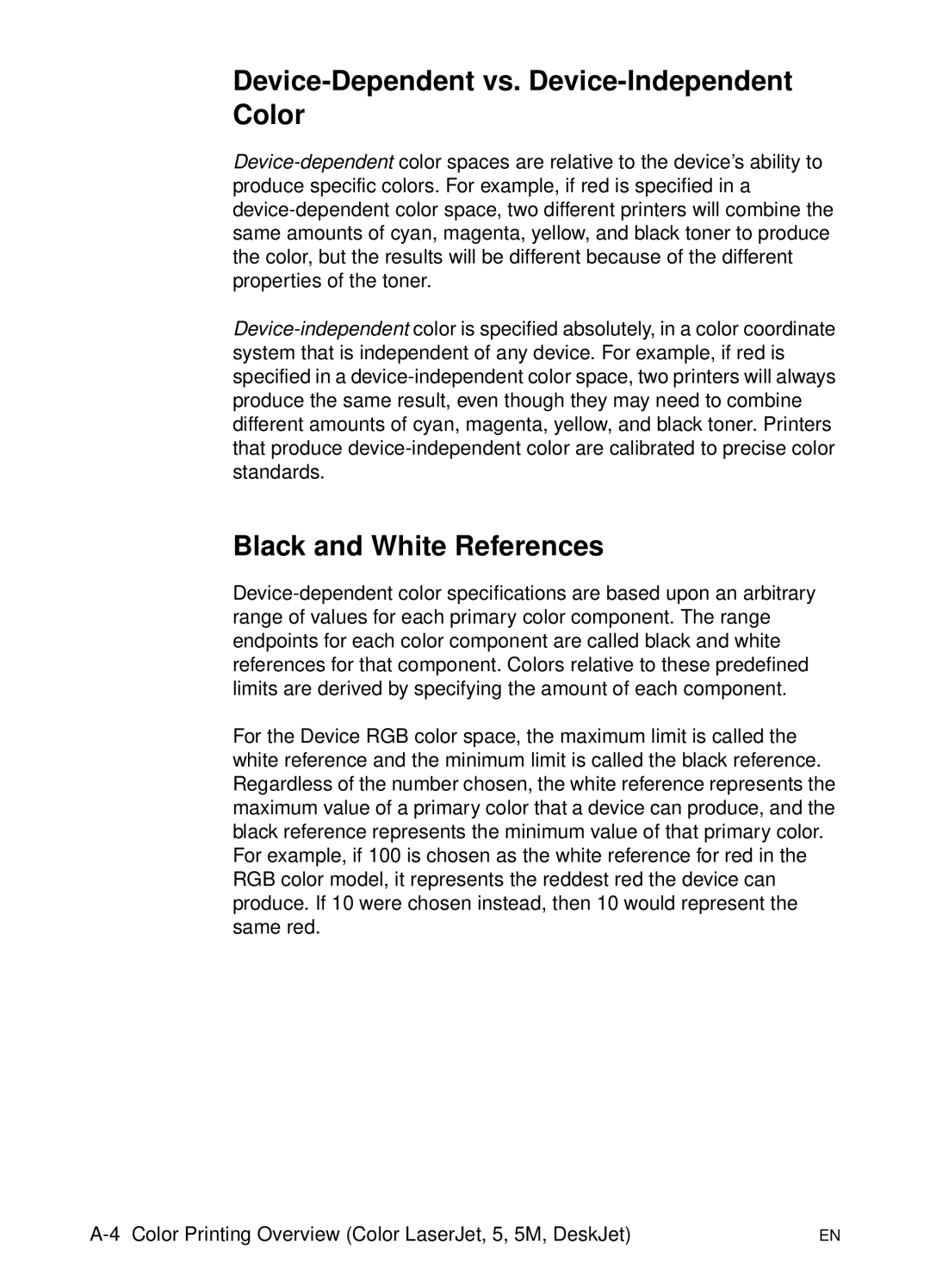Device-Dependent vs. Device-Independent Color
Device-dependentcolor spaces are relative to the device’s ability to produce specific colors. For example, if red is specified in a device-dependent color space, two different printers will combine the same amounts of cyan, magenta, yellow, and black toner to produce the color, but the results will be different because of the different properties of the toner.
Device-independentcolor is specified absolutely, in a color coordinate system that is independent of any device. For example, if red is specified in a device-independent color space, two printers will always produce the same result, even though they may need to combine different amounts of cyan, magenta, yellow, and black toner. Printers that produce device-independent color are calibrated to precise color standards.
Black and White References
Device-dependent color specifications are based upon an arbitrary range of values for each primary color component. The range endpoints for each color component are called black and white references for that component. Colors relative to these predefined limits are derived by specifying the amount of each component.
For the Device RGB color space, the maximum limit is called the white reference and the minimum limit is called the black reference. Regardless of the number chosen, the white reference represents the maximum value of a primary color that a device can produce, and the black reference represents the minimum value of that primary color. For example, if 100 is chosen as the white reference for red in the RGB color model, it represents the reddest red the device can produce. If 10 were chosen instead, then 10 would represent the same red.
A-4 Color Printing Overview (Color LaserJet, 5, 5M, DeskJet) | EN |
